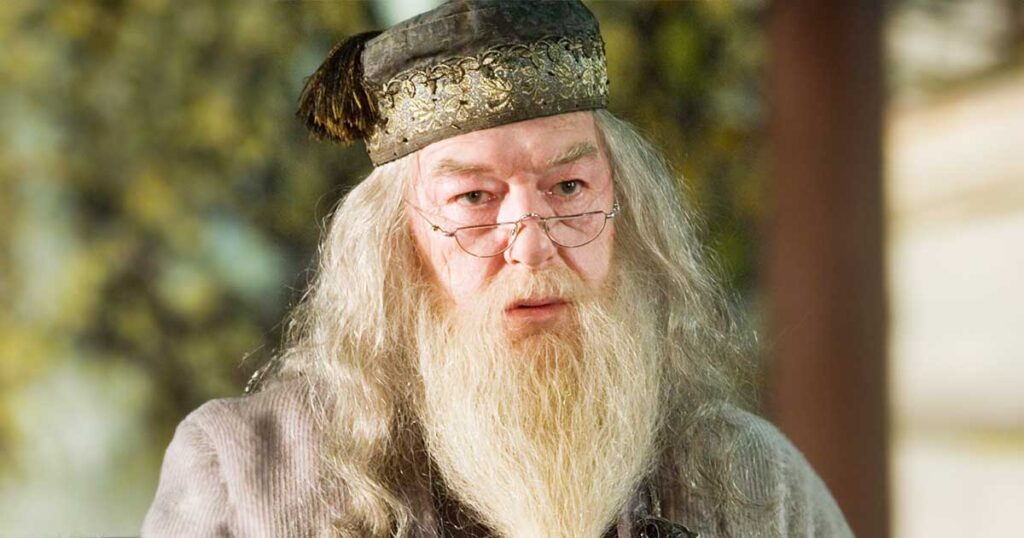The Harry Potter series isn’t just a beloved tale; it’s a plot hole treasure trove begging for wild theories! One head-scratcher? Dumbledore’s supposed grand scheme in Deathly Hallows. How did this legendary wizard—famed for his foresight—leave so much to chance in Harry’s showdown with Voldemort? Critics often slam Dumbledore, calling him indifferent, especially with Snape’s line about raising Harry “like a pig for slaughter.” But a sinister puppet master or just a blindfolded conductor lost in chaos?
Albus Dumbledore: The Man with a Plan?
In reality, Dumbledore’s strategy was more reactive than orchestrated. His big mistakes? Neglecting Harry’s welfare while he was trapped with the Dursleys and sending the boy to face Voldemort solo at such a tender age. Classic Dumbledore, right? But those blunders don’t erase the fact that his intentions were noble—he aimed to prepare Harry for the inevitable showdown. Yet, as the story unfolded, it became clear that things went south in spectacular fashion.
When the dust settled, the King’s Cross chapter emerged as a treasure trove of revelations. Dumbledore’s candid confession about the Deathly Hallows caught many off guard. He claimed to have set Harry on a path to unite them, stating, “You are the worthy possessor of the Hallows.” But wait! Wasn’t Dumbledore supposed to be breaking the Elder Wand’s power? This contradiction left fans scratching their heads. Did he genuinely want Snape to possess the Elder Wand, or was he secretly plotting to shatter its influence?
Things get even murkier when we consider the potential repercussions of Dumbledore’s schemes. Suppose Snape had successfully “ended up with it.” Voldemort would undoubtedly snuff him out once he figured out who held the Wand. The stakes were high, and Dumbledore was playing a dangerous game with Snape caught in the crossfire.
Severus Snape: The Unlikely Pawn
Dumbledore’s intentions, however, hinted at a grander design. It raises questions about whether he genuinely believed Voldemort would pursue the Elder Wand. Did Dumbledore expect Snape to become the Wand’s next master? After all, Snape’s fate hinged on this precarious chess match, where one misstep could spell disaster for him and Harry.
Then there’s the curious matter of Harry’s confrontation with After the Graveyard debacle, demort. Dumbledore seemed to have anticipated Voldemort’s obsession with the El debacle. But did he foresee how it would all play out? Dumbledore had a knack for improvisation even though he couldn’t predict the implications of Harry’s accidental reveal during the Seven Potters’ plan. Had things gone differently, Voldemort might not have even sought the same.
So, was Dumbledore just throwing spaghetti at the wall to see what stuck? Perhaps. It’s tempting to chalk it up to Rowling’s narrative inconsistencies, but maybe Dumbledore’s planning was a misguided attempt at manipulating fate. His ultimate aim seemed to be empowering Harry while keeping Voldemort distracted and off balance. In this chaotic dance of destiny, the Elder Wand was meant to be a wild card rather than a primary weapon.
Dumbledore’s convoluted intentions of fortunate mishaps ultimately led to Harry’s success. The Elder Wand’s power may have been a gamble, but it also became an asset. In typical Dumbledore style, one plan morphed into another, yielding unexpected rs that aligned with his secretive designs. The question remains: was it a masterstroke or merely luck? Either way, it left fans wondering about the tangled web of choices, motives, and consequences that defined their beloved wizarding world.
Follow Koimoi for more such Hollywood updates.
Follow Us: Facebook | Instagram | Twitter | Youtube | Google News

